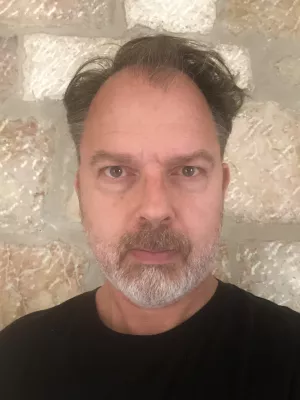
Torsten Janson
Researcher

Istanbul Contested: Redrawing Religious/Secular Boundaries in Turkish Visual Politics
Author
Summary, in English
This paper discusses the increasing prominence of religious, iconic symbolism in Turkish visual politics, by focusing state sponsored expositions, cultural-cum-pedagogic events and public celebrations, orchestrated by the Turkish AKP Government and affiliated municipalities. Such public, religio-cultural and populist orchestrations of Islamic symbolism, this paper argues, are aspects of a current struggle about the very identity of Turkish nationalism, as well a re-negotiation of religious imageries in urban, public space.
As has been noted in recent research on contemporary Turkish politics, we are currently witnessing an increasing recourse to Islamic and neo-Ottoman symbolism in informal political events and discourse, on the initiative of the religiously oriented Turkish government and its network of religious activist movements in the civil society. In line with such research, this paper discusses the increasingly institutional and official character of such appropriation of visual symbolism, evoking religious imagery, Islamic moral values and (quasi)historical references to an idealized Islamic (and Ottoman) past. The appropriation of visual Islamic symbolism, cloaked as “pedagogic” or “cultural” events in urban public space, efficiently convey an anti-secularist ideology, while avoiding imposition of religious norms in official political or legal discourse. Such events provide a populist, politicized venue, appealing to an increasingly urbanized pious constituency, yet strategically by-passing Turkish secular, constitutional provisions. This paper also explores such appropriations of religious symbolism in public space in terms of a (re)drawing of the boundaries for what is considered as acceptable from Islamic institutional perspectives. In short: orchestrating politics through religious symbolism not only changes the nature of politics, but the religious imaginaries as such.
The paper builds on ethnography, document- and visual analysis from Turkish public bodies and state museums, such as “The Sacred Trusts” collection of Islamic relics at the Topkapi Palace Museum, Istanbul. The paper also builds on recent data collected from the religious and semi-official national celebrations of “The Holy Birth Week”, commemorating the birth of Prophet Muhammed. Theoretically, the paper draws on visual anthropology as well as urban- and political sociology in exploring such displays of visual politics through appropriations of public urban space, as well critical Islamic studies perspectives on the invention of sacred traditions accommodated to renegotiated pedagogical and institutional formats.
As has been noted in recent research on contemporary Turkish politics, we are currently witnessing an increasing recourse to Islamic and neo-Ottoman symbolism in informal political events and discourse, on the initiative of the religiously oriented Turkish government and its network of religious activist movements in the civil society. In line with such research, this paper discusses the increasingly institutional and official character of such appropriation of visual symbolism, evoking religious imagery, Islamic moral values and (quasi)historical references to an idealized Islamic (and Ottoman) past. The appropriation of visual Islamic symbolism, cloaked as “pedagogic” or “cultural” events in urban public space, efficiently convey an anti-secularist ideology, while avoiding imposition of religious norms in official political or legal discourse. Such events provide a populist, politicized venue, appealing to an increasingly urbanized pious constituency, yet strategically by-passing Turkish secular, constitutional provisions. This paper also explores such appropriations of religious symbolism in public space in terms of a (re)drawing of the boundaries for what is considered as acceptable from Islamic institutional perspectives. In short: orchestrating politics through religious symbolism not only changes the nature of politics, but the religious imaginaries as such.
The paper builds on ethnography, document- and visual analysis from Turkish public bodies and state museums, such as “The Sacred Trusts” collection of Islamic relics at the Topkapi Palace Museum, Istanbul. The paper also builds on recent data collected from the religious and semi-official national celebrations of “The Holy Birth Week”, commemorating the birth of Prophet Muhammed. Theoretically, the paper draws on visual anthropology as well as urban- and political sociology in exploring such displays of visual politics through appropriations of public urban space, as well critical Islamic studies perspectives on the invention of sacred traditions accommodated to renegotiated pedagogical and institutional formats.
Department/s
- MECW: The Middle East in the Contemporary World
- Centre for Advanced Middle Eastern Studies (CMES)
Publishing year
2018
Language
English
Full text
- Available as PDF - 45 kB
- Download statistics
Document type
Conference paper: abstract
Topic
- Political Science
Conference name
Metropolis Middle East Workshop
Conference date
2018-03-18 - 2018-03-18
Conference place
Beirut, Lebanon
Status
Unpublished

